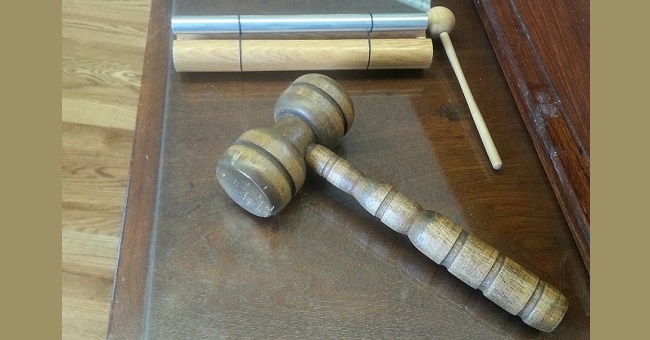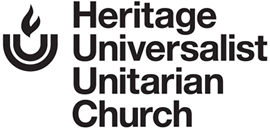
Heritage is a Unitarian Universalist congregation. One of our most cherished principles is that of Congregational Polity. This means we, the members of the congregation, bear the complete responsibility for governing our church. Decisions about leadership, membership, finances, property, and worship are made by the congregation except when such decisions are delegated by the congregation or our Constitution to groups of members (for example, to the Board of Trustees and various standing committees).
There is no church hierarchy that seeks our obedience. Our church is a member of the Unitarian Universalist Association, through which the 1,000 UU congregations in the United States seek to help each other.
Central to Congregational Polity is the Annual Congregational Meeting. Occasionally a special congregational meeting may be called. Every full member is expected to participate if possible and voice their vote.
Voting membership in the church is attained by expressing in writing to the Board of Trustees the desire to accept the rights and responsibilities thereof. This is followed by signing the membership book, usually as part of a Sunday service.
Some people choose to remain Contributing Friends – those who participate in church activities and support Heritage financially, but do not choose to “sign the book.” Contributing Friends are welcome on most committees and leadership positions, but are not counted as part of the quorum at a Congregational Meeting and are not eligible to vote.
Heritage’s Annual Congregational Meeting is typically held in June. The agenda includes approving the budget for the coming year (our fiscal year runs from July 1 to June 30), discussing and voting on changes to the church Constitution, and electing members of the Board of Trustees.
Heritage has a seven-member Board of Trustees with staggered three-year terms. The new board members begin their terms on July 1. The Board has general charge of the administration of the church, responsibility for its property, and the hiring of non-ordained staff, within the constraints of the budget. The policies and activities of all committees, teams, and ad hoc groups are subject to the oversight of the Board.
The Senior Minister is the head of staff with responsibility for the daily operation of the church. They are called by the Congregation, not assigned to the church or hired by the Board. They are an ex officio member of all committees.
Learn more:
